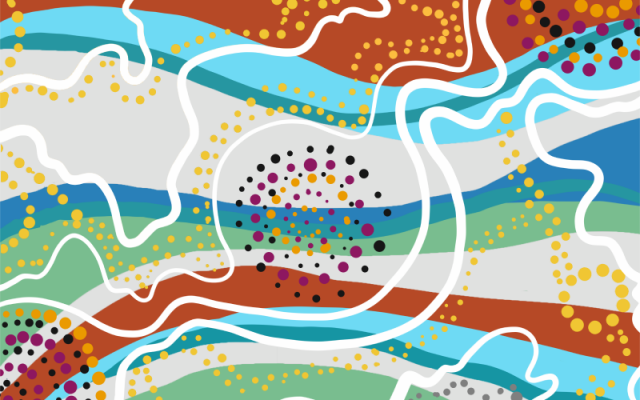
On Data Sovereignty
Kia ora and worimi! My name is Sharon Marra-Brown, I am from Aotearoa, New Zealand, from Pakeha whaler and colonial settler ancestors. I descend also from Moriori ancestors from Rēkohu (the Chatham Islands) – a story so wrapped in whispers that my whakapapa (genealogy) on that side is lost to me. I now live on Dharug lands and nga mihi (pay my respect) to the unceded rangatiratanga (sovereignty) of the Dharug nation and their kaitiakitanga (guardianship) of this nura (country – the Hawkesbury in NSW).
You might be familiar with the concept of data sovereignty – generally referring to the principle that when data is collected in a particular jurisdiction, the rules and laws in that jurisdiction apply. This general principle has been adopted by First Nations communities as a way of setting standards that ensure data collected in First Nations communities is approached in a way that is consistent with the epistemology of that community.
“Once colonialism occurred… indigenous peoples’ data systems were replaced… Contact and colonialism accidentally submerged—or intentionally expunged—indigenous peoples’ extant epistemologies” [1].
Indigenous data sovereignty is, then, part of the process of decolonisation, with control over data being, “an important element of exercising self-determination, framing needs and measuring impact in line with the perspectives, values and aspirations of Aboriginal [and Torres Strait Islander] communities.” [2]
In our work here in Australia, we adhere to the Indigenous Data Governance protocols and principles developed by Maiam nayri Wingara, meaning ‘to welcome good knowledge’ in the languages of the Mer, Palawi Kani and Darug peoples [3]. These protocols and principles were developed by the Indigenous Data Sovereignty Collective, and form part of the AIATSIS Code of Ethics for Aboriginal and Torres Strait Islander Research.
These principles state the rights of Aboriginal and Torres Strait Islander peoples to:
- Exercise control of the data ecosystem including creation, development, stewardship, analysis, dissemination and infrastructure
- Data that is contextual and disaggregated
- Data that is relevant and empowers sustainable self-determination and effective self-governance
- Data structures that are accountable to Indigenous peoples and First Nations
- Data that is protective and respects our individual and collective interests.
In my own work, I also draw on the six principles of Māori data sovereignty developed by Te Mana Raraunga, the Māori Data Sovereignty Network. These principles guide researchers and evaluators in Aotearoa to collect data in Māori communities in ways that are consistent with Te Ao Māori – the Māori world view.
1. Rangatiratanga | Authority
This principle covers the right to Māori control, jurisdiction and self-determination, which means ensuring that the Māori iwi (tribes) retain control over all aspects of data collection, interpretation, reporting, storage and reuse.
2. Whakapapa | Relationships
Whakapapa is generally used to refer to genealogy – your family connections. Used here, it provides guidance on three issues – context, data disaggregation and future use. Data gathered must retain accurate metadata that ensures it remains connected to its context – “All data has a whakapapa (genealogy)” [4].
3. Whanaungatanga | Obligations
This principle is about the obligations and accountability that those collecting data have to the people they collect the data from. It also emphasises the responsibility to balance the individual versus the collective.
4. Kotahitanga | Collective benefit
‘Kotahitanga’ is generally used to describe solidarity, unity and togetherness [5]. This principle sets a standard that those collecting data ensure the process provides benefit to the community, builds capacity and enhances connection between Māori and other Indigenous people.
5. Manaakitanga | Reciprocity
This principle asks the researcher to ensure that their work “upholds the dignity” of Māori communities and actively avoids approaches that stigmatise or blame Māori communities. The principle of free, prior and informed consent must be familiar to all of us.
6. Kaitiakitanga | Guardianship
This final principle places the onus on researchers to be good custodians of Māori data, in terms of storage, ethics and restrictions. All of this mahi (work) should ensure that Māori communities ultimately retain their rangatiratanga (authority) over their data, including deciding what is tapu (controlled or sacred) and what is noa (open or ordinary).
These six principles are framed around tikanga (protocols and procedures) that are key to Te Ao Māori (the Māori world view).
There are strong overlaps and connections between these two sets of principles. As evaluators, it’s our responsibility to be familiar with them and ensure that as we gather data, we do so in a way that respects the values and protocols of the communities where we work. In doing so, we place individual people and their communities at the center of our work, and are guided by them.
In Māori tradition, I should end with a song. But instead, I leave you with this whakataukī (saying).
He aha te mea nui o te ao? He tāngata, he tāngata, he tāngata.
What is the most important thing in the world? It is people, it is people, it is people.
References
[1] Pool, I. 2016. ‘Colonialism’s and postcolonialism’s fellow traveller: the collection, use and misuse of data on indigenous people’ in Indigenous Data Sovereignty. ANU Press. Available at: https://press.anu.edu.au/publications/series/caepr/indigenous-data-sovereignty
[2] AbSec’s Position on Indigenous Data Sovereignty. Available at: https://www.absec.org.au/images/downloads/Indigenous-Data-Sovereignty-Policy-Brief-Final-2019.pdf
[3] Mayi Kuwayu. 2020. Maiam nayri Wingara Indigenous Data Governance protocols and principles. Available at: https://mkstudy.com.au/indigenousdatasovereigntyprinciples/
[4] Te Mana Raraunga. 2018. Principles of Māori Data Sovereignty. Brief #1. Available at: https://static1.squarespace.com/static/58e9b10f9de4bb8d1fb5ebbc/t/5bda208b4ae237cd89ee16e9/1541021836126/TMR+Ma%CC%84ori+Data+Sovereignty+Principles+Oct+2018.pdf
[5] Moorfield, John C. 2003-2020. Te Aka Online Māori Dictionary. Available at: https://maoridictionary.co.nz/search?idiom=&phrase=&proverb=&loan=&histLoanWords=&keywords=manaaki




